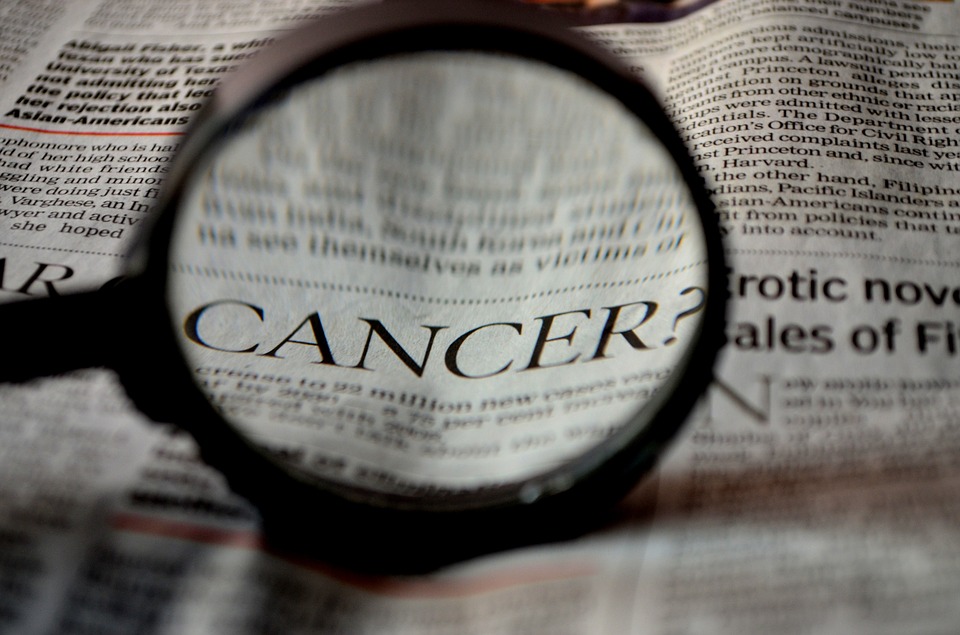Breakthrough study confirms vitamin D prevents cancer… yet few doctors recommend vitamin D at all
04/05/2017 / By Earl Garcia

Increasing vitamin D intake reduces the risk of cancer by 30% among post-menopausal women, a new study suggests. Yet, “health experts” still say that there is no conclusive link between vitamin D intake and reduced cancer risk. According to Marji McCullough, Strategic Director of Nutritional Epidemiology for the American Cancer Society (ACS), data from scientific reviews show varying conclusions about the vitamin’s role in mitigating the risk. McCollough suggests that people adhere to the IOM’s recommended daily vitamin D intake until further research provides sufficient evidence on vitamin D’s efficacy in reducing the risk of cancer. The ACS also discourages routine vitamin D assessment for cancer prevention.
Another health expert attempts to dissuade people from taking this supplement, claiming its role in cancer prevention remains to be proven. “As with other interventions, supplements are a deep interference with people’s lives and they have to prove that the benefits as measured by patient-important outcome parameters outweigh the harms. Not many interventions in medicine are as much evaluated as vitamin supplementation – and have provided so little good evidence at the same time,” said Bernd Richter, Coordinating Editor of the Cochrane Metabolic and Endocrine Disorders Review Group.
What this new breakthrough study proves
Data show that women who take vitamin D and calcium supplements have a 30% reduced risk of cancer compared with the control group. Further analysis of blood samples also reveals that the women who developed cancer over the course of the study had significantly lower vitamin D levels than their healthier counterparts. Take note that the participants who were in the vitamin D and calcium supplements group took significantly more vitamin D than usual target levels. This does suggest that increasing vitamin D levels can substantially reduce the odds of cancer.
Researchers at Creighton University and the University of California San Diego examined 2,303 healthy post-menopausal women aged 55 years and older who were given either 2,000 international units (IU) of vitamin D3 and 1,500 mg of calcium or a placebo pill over a four-year study period. The vitamin D dose used in the study is about three times higher than the current recommended daily allowance of 600 to 800 IU.
“The study provides evidence that higher concentrations of 25(OH)D in the blood, in the context of vitamin D3 and calcium supplementation, decrease risk of cancer. These results contribute to a growing body of scientific findings…that indicate that vitamin D is a critical tool in fighting cancer,” said lead researcher Joan Lappe.
The findings are published in the Journal of the American Medical Association.
More studies provide evidence on vitamin D’s anticancer properties
The recent study’s results correspond to previous research on vitamin D’s efficacy in decreasing the risk of cancer.
Scientists at the Spanish National Cancer Research Centre examined more than 2,000 respondents and observed higher bladder cancer risk in patients with significantly low vitamin D levels. Vitamin D deficiency appeared to worsen the risk for patients with muscle-invasive tumors. However, increased vitamin D levels mitigated the risk of bladder cancer progression in patients with non-muscle invasive bladder cancer, researchers said.
The results were published in the Journal of the National Cancer Institute.
Another study published in the journal PLOS One revealed that higher vitamin D levels mitigate the risk of cancer. Researchers at the University of California-San Diego found that women with vitamin D levels at 40 ng/ml or higher had a 67% lower risk of developing cancer than those whose vitamin D levels were at 20 ng/ml or lower.
“Primary prevention of cancer, rather than expanding early detection or improving treatment, will be essential to reversing the current upward trend of cancer incidence worldwide. This analysis suggests that improving vitamin D status is a key prevention tool,” said researcher Prof. Cedric Garland.
Sources:
Tagged Under: American Cancer Society, cancer, vitamin D




















